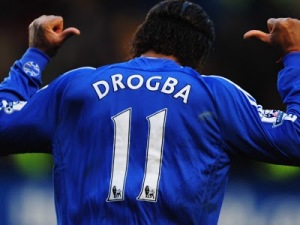Ashley Cole is a player who has often been in the headlines. Whether it was for his personal relationship and its breakdown, his on-the-pitch exploits, his training ground air rifle incident, being banned from driving or his controversial move to Chelsea in 2006 he has often dominated front and back pages of the national newspapers.
He burst onto the scene as a professional footballer with Arsenal in the 2000/2001 season, profiting from an injury to Silvinho to show his promise in the Gunners’ first team. He made 228 appearances for Arsenal before eventually signing for Chelsea in August 2006, after a drawn-out affair that involved a ‘tapping-up’ meeting with Chelsea officials in January 2005.
England
He has been a regular in the England set-up since his debut in 2001 and has virtually been an automatic pick for most of the last 11 years. His time with England has also had its ups and downs for Cole. At one time he was booed by England fans at a few home matches at Wembley. And comments that came out in the media quoting Cole as saying “I hate England and the people” didn’t help his cause in 2010. But he has always performed fairly well for England. Perhaps giving his best performances in recent years as he has grown and improved as a player. His athleticism was always strength of his as a youngster, but now he has fused that with excellent positioning, one-on-one defending and timing of his tackles.
Medals
After winning 5 major trophies (excluding the Community Shield) in his 6 full seasons at Arsenal, he has surpassed that in his first 6 seasons at Chelsea with the Champions League winners triumph on Saturday being the 7th major competition’s winners medal he has picked up in that time. Whilst surprisingly he won more Premier League winners medals at Arsenal than he has thus far with Chelsea (two to one), the Champions League victory and the fact that Arsenal haven’t won a single trophy since he left should eliminate any doubt that he made the right decision to switch from North London to West London 6 years ago.
Improvement
There is also no question that Cole has improved as a player as a result of his time at Chelsea. Arsenal under Arsene Wenger are said to spend very limited time working on defending in training, which can only be to the detriment of young defenders like Cole was at the time. At Chelsea he has worked under Jose Mourinho, Carlo Ancelotti and Guus Hiddink – all known for being fantastic coaches and all known for having well-organised defences. Cole has reaped the rewards of this and has obviously been keen to improve. The young marauding left-back we saw at Arsenal is now a solid, reliable left-back who is rarely beaten, both in the air and on the ground. He still gets forward to support attacks but chooses the time to do it more effectively to ensure it doesn’t imbalance the team or leave them too exposed at the back. He has come up against the likes of Cristiano Ronaldo, Arjen Robben and Theo Walcott, all offering different problems, and has not been outclassed in any of those battles.
Champions League Stage for Excellence
The 2011/2012 season has been a dramatic one for Cole. Chelsea struggled for form under previous manager Andre Villas-Boas in the first half of the season. Cole found himself out of the team as Villas-Boas seemed to want to re-build the Chelsea team with younger players. A key match for Cole was the Champions League second round 1st leg away to Napoli. Cole was left on the bench, along with other experienced players, but was called upon just 12 minutes in when Jose Bosingwa limped off injured. Chelsea went down 3-1 that night in Naples but Cole made a crucial goal-line clearance to keep the score at 3-1. By the time the second leg came around, Villas-Boas had been replaced as manager by interim boss Roberto Di Matteo. The Italian restored faith in the senior professionals and they all starred in a brilliant 4-1 victory at Stamford Bridge to ensure progress to the quarter finals.
Two brilliant defensive performances against Benfica in the quarter-finals were followed by two world class performances against Barcelona in a dramatic two-legged semi-final. Cole was exceptional at Stamford Bridge as Chelsea defeated the holders 1-0 thanks to Didier Drogba’s goal. He was then faultless in the Nou Camp as ten-man Chelsea fought off wave after wave of Barcelona pressure to draw 2-2 and make the final.
In front of a worldwide audience in the UEFA Champions League Final of 2012, Ashley Cole confirmed his standing as a truly world class left-back with another master class performance at full-back. Facing the likes of Ribery, Robben and Lahm, Cole was rarely beaten, made another key goal-line clearance and was fantastic as Chelsea soaked up almost constant pressure from Bayern Munich to take the game to a penalty shoot-out. Cole showed nerves of steel to score a penalty in the shoot-out and help his side on the way to the trophy that has eluded them since Roman Abramovich began to plough his millions into the club in 2003. Whilst he is not perfect and could improve on his delivery into the box when in good positions to cross, he has developed over the years to the point where he can now be considered one of the best left-backs in world football.
Picture courtesy of fansfc.com.




